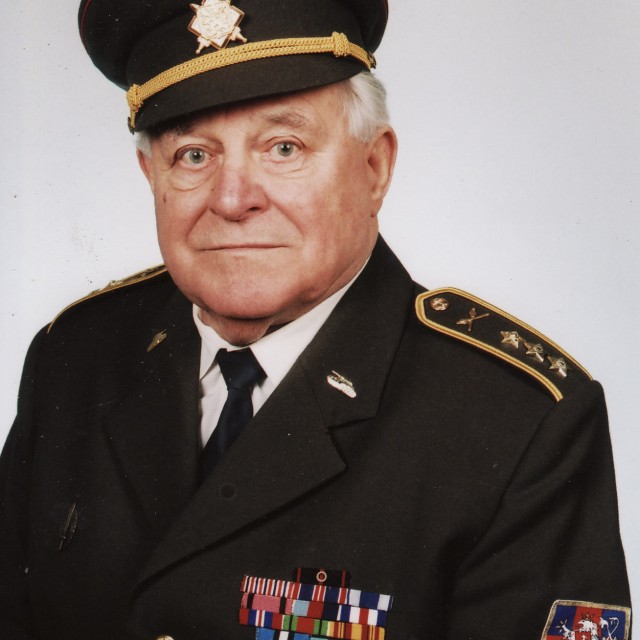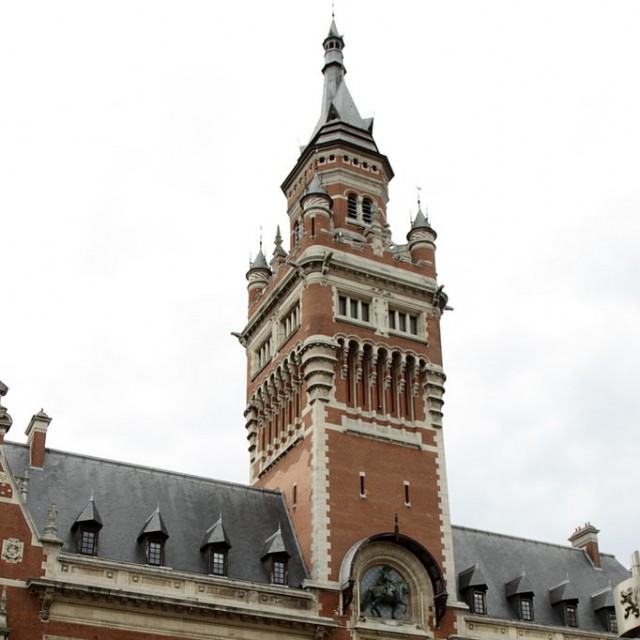It was a Horrible Slaughter
In October 1944, Otmar Malíř was transferred to the Czechoslovak Brigade in Dunkirk. The port Dunkirk was occupied by approximately twelve thousand German troops. The task of the Czechoslovaks was to keep the Germans in the port and not let them escape from the encirclement. It was not easy because the soldiers of the Wehrmacht were outnumbered. One of the first battles was planned by the brigade´s command on the 28th October, on the occasion of a Czechoslovak national holiday. “On the twenty-eighth we attacked for the first time. It was on the day of a national holiday in order that the Germans did not expect the attack and were inattentive. We surprised them. The attack started at five a.m. and if it had been better-prepared we could have taken over the whole of Dunkirk. The German soldiers were running from the bunkers in their underwear. It ended with three hundred captive soldiers and six officers. We got back to our position.” The next attack was planned on the fifth of November. “As we attacked, the German tanks and cannons started to fire. At the very beginning we lost eight tanks and the attack was called off. It was a horrible slaughter because we lost about eighteen tanks and there were a lot of wounded and dead soldiers. A lot of Germans were killed, too.” Otmar Malíř got into many other life-threatening situations at Dunkirk.
Hodnocení
Abyste mohli hodnotit musíte se přihlásit!
Trasy
Příběh není součastí žádné trasy.
Komentáře

Otmar Malíř
Otmar Malíř was born in 1923 in Prostřední Suchá (today Havířov). In September of 1942, he was forced to enroll in the Wehrmacht and after his training in Horb am Neckar near Stuttgart, assigned to the Afrikakorps. He fought in Tunisia and in Libya. He was captured by the Brits in May 1943. In the internment camp in Tunisia, he signed up for military service as a Czechoslovak and he became a delivery man in the Pioneers corps for the next four months. Then, he was transported to Britain together with the other Czechoslovaks and became a member of the independent Czechoslovak brigade. After the invasion of the allied forces in Normandy, he participated in the siege of Dunkirk. Back in Czechoslovakia, he worked briefly as an instructor in Moravská Třebová. He was demobilized in January of 1946 having the rank of a corporal. Shortly afterwards, he started to work as a clerk in ČSD (the Czechoslovak railroad company) in Branná in the Šumperk region. He joined the national socialists and became a member of the national committee. After February 1948, he was dismissed from the committee and lost his job in the ČSD. He then founded an anti-Communist group together with a couple of trustworthy people. This group was plotting to overthrow the Communist regime. He was arrested in June 1955 and sentenced to twenty years in jail by the high military court in Trenčín. The sentence also entailed the deprivation of all of his property. He served his prison term of 8 years, 7 months and 8 days in the prisons Mírov and Leopoldov. After 1989, he became the organizer of the Havířov branch of the Confederation of political prisoners (originally the Association of political prisoners). He was also the president of this organization for a couple of years. He was one of the initiators of the placing of a commemorative plaque to the soldiers from the Těšín region who lost their lives in WWII. Presently, he lives in Havířov.






